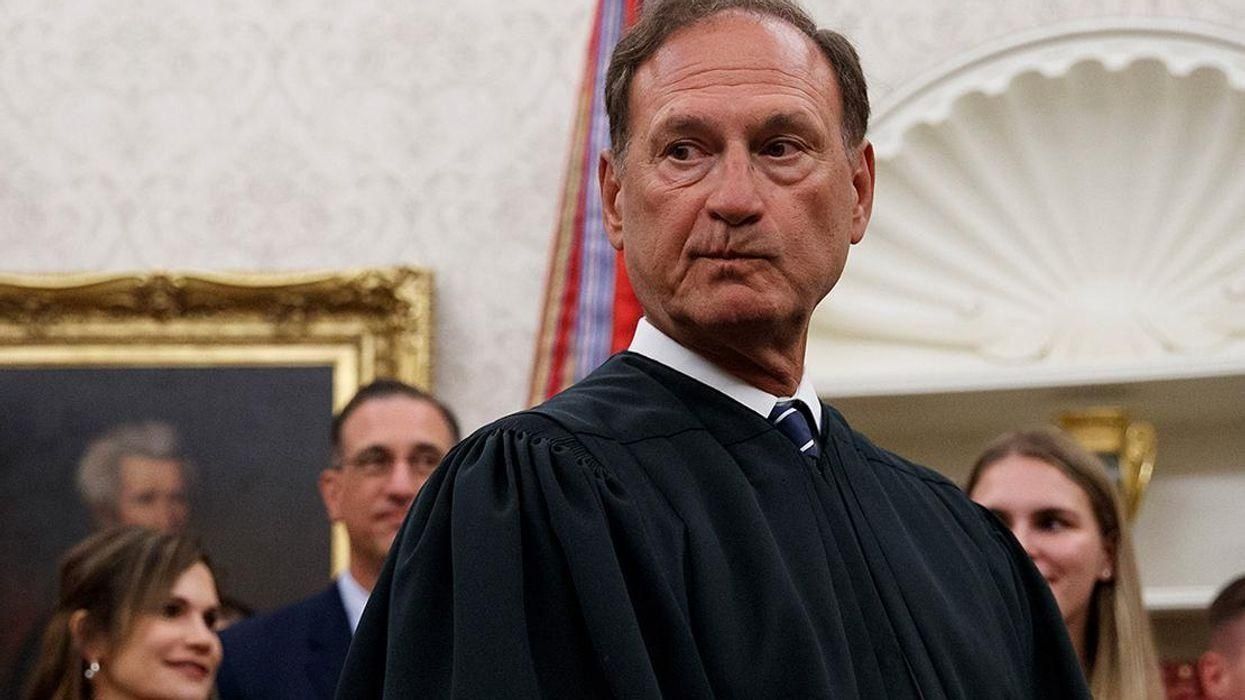One of President Donald Trump's appointees on the federal bench appeared to make a deliberate effort to put himself at the top of the pack of potential new Supreme Court justices, according to a recent analysis.
In a Friday article for the Washington Post, columnist Jason Willick delved into a dissent submitted earlier this week by Fifth Circuit Court of Appeals Judge Andrew Oldham (who was nominated during Trump's first term) in a high-profile immigration case Trump just lost. Oldham — who clerked for Supreme Court Justice Samuel Alito – was the lone dissenter on a three-judge panel weighing the legality of Trump's invocation of the Alien Enemies Act of 1798 to justify deporting immigrants without due process earlier this year. The Trump administration claimed in court that the Alien Enemies Act was appropriate, saying that the Venezuelan gang Tren de Aragua was invading the United States with the blessing of Venezuelan leader Nicolas Maduro.
Willick argued Oldham's dissent is "best understood as an extended political audition for a Supreme Court seat," adding that while it "might play well with its intended audience; it might also take a toll on the rule of law." He also noted that Justices Alito and Clarence Thomas are in their seventies and may retire before Trump's second term ends in 2029.
READ MORE: 'He was an FBI informant': Mike Johnson makes stunning admission about Trump
The other two judges on the panel — Irma Carrillo Ramirez and Leslie H. Southwick, who were appointed by Presidents Joe Biden and George W. Bush, respectively — ruled that Trump's use of the act was improper, as the Alien Enemies Act (last invoked during World War II against Japan) pertained to invasions by foreign nations, rather than gangs. But Oldham argued that Trump's declaration of an invasion was enough justification on its own.
"We don’t get to demand the President’s homework," Oldham wrote.
Willick wrote that Oldham's 130-page dissent (the other two opinions were 54 pages combined) "veers off the rails" when he asserted that the alleged members of Tren de Aragua did not have the right to dispute the administration's claims that they were affiliated with the gang, and that they could only argue against being Venezuelan. Willick pointed out that Oldham's view is contrary to even that of the Supreme Court, which explicitly ruled this spring that alleged gang members can "contest their designation" and be afforded proper due process rights under the Constitution.
"Oldham, in other words, bent over backward to interpret the Trump administration’s powers under the Alien Enemies Act even more broadly than Trump’s lawyers do," Willick wrote. "The judicial qualities that make for a potentially successful Supreme Court audition, in other words, might not actually help the Trump administration win cases ... let’s hope he would also be an independent justice if Trump gave him the nod — because the political obsequiousness apparently required to get the job is bad for the judiciary as a whole."
READ MORE: Busted: Susan Collins advanced Trump bill after receiving $2 million from billionaire
Click here to read Willick's full column in the Washington Post (subscription required).


